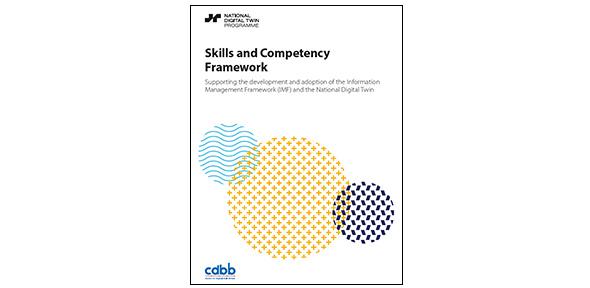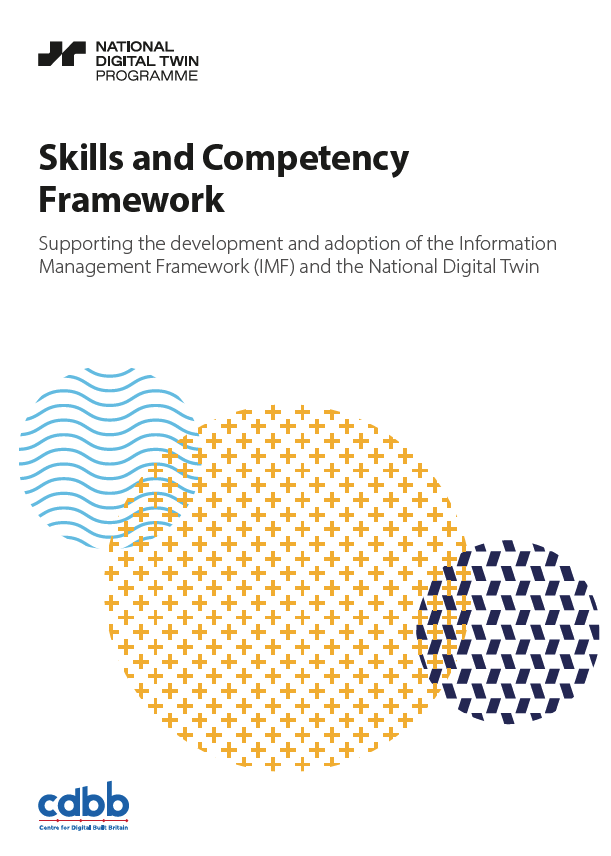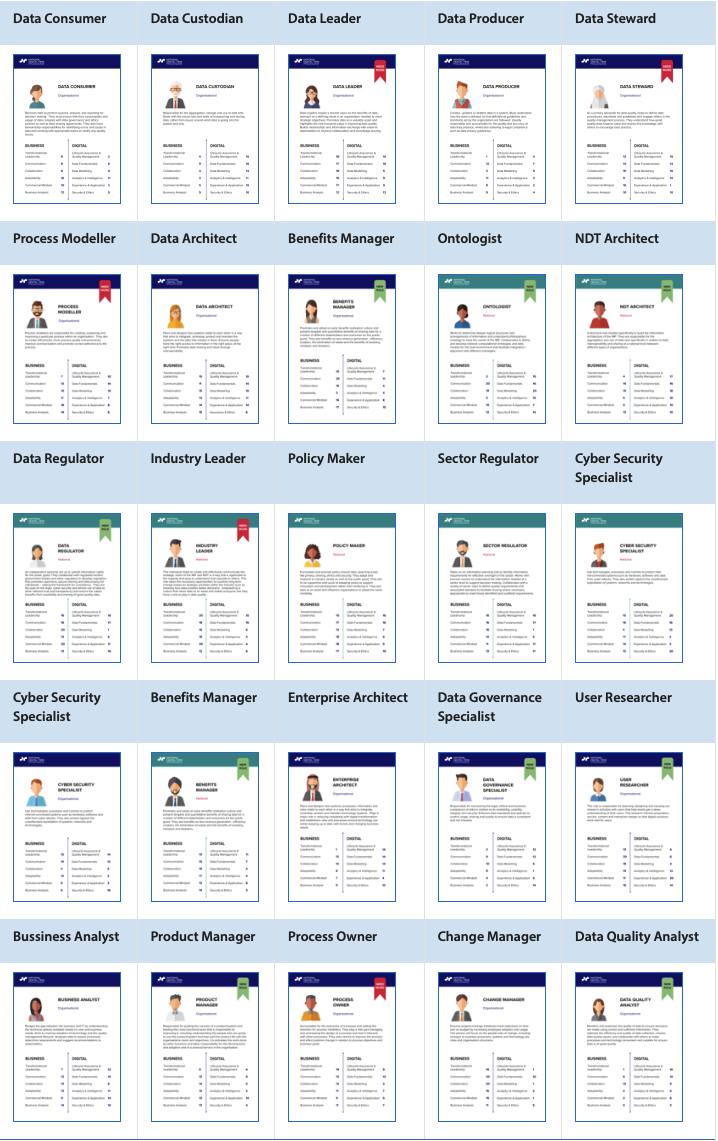
Submitted by Angela Walters on Mon, 01/03/2021 - 11:00
The Centre for Digital Built Britain (CDBB’s) National Digital Twin programme, in partnership with the Construction Innovation Hub, has released a Skills and Competency Framework to help individuals, organisations and training bodies to understand the roles and competencies needed to support the National Digital Twin. This new resource represents the first step in a journey to set out and develop the skills and competences required to re-imagine your career pathway or grow your organisation.
The potential benefits of the NDT are enormous. In the UK, the built environment sector is responsible for 40% of the country’s total carbon footprint, 10% of which is directly related to construction alone1. The construction sector employs over 10% of the country's workforce, and contributes 8% of the UK’s GDP. In a sector this size, small gains made through data-driven decision making could have significant social, environmental and economic impacts.
As we emerge from the pandemic and face challenge, including the climate emergency and rising social inequality, decision-makers’ need to have access to a wealth of good quality information is even more urgent.
CDBB is breaking down barriers to data sharing and one of the first steps taken is the development of the Information Management Framework (IMF) to drive effective information management across our nation’s built environment. The IMF will enable an ecosystem of connected digital twins, the National Digital Twin (NDT) - where high-quality data about the built environment is shared securely, on a massive scale to improve decision making across the UK. Achieving the National Digital Twin is an ambitious goal and it will take an incremental, collaborative and transformative approach for it to be successful. Over the coming years, the IMF will outline the technical foundations needed to connect and integrate digital twins - digital replicas of physical assets, processes, and systems. The Skills and Competency Framework, is the people enabler needed to develop and drive adoption of the IMF.
So, how can you be part of affecting positive change?
With the National Digital Twin in place, organisations can work collectively to solve economic, social and environmental challenges: from leveraging carbon usage data to support national initiatives like Net Zero to optimising our railways and road networks’ performance.
We need a future workforce with the right skills to play their part by supporting the secure and resilient exchange of data across organisational and sector boundaries; and make meaningful data-driven decisions. Right now, there is a significant talent gap and a great opportunity to retrain or upskill for a new career path. The new Skills and Competency Framework outlines the roles and skills needed to develop and implement the IMF to guide your way. The framework is the first in a number of resources being developed to support the sector, including a range of videos that set out the benefits and a capability enhancement programme outlining learning journeys for key roles.
It is designed to help the current and future workforce identify the digital skills they need to thrive, and give more people access to new and emerging career progression opportunities and is the starting point of a journey to help the industry acquire the skills it needs to develop and implement the IMF and NDT.
It is intended to support a diverse set of stakeholders across the built environment, including potential early adopters of the IMF and digital twins, who will in turn support the development of the NDT. It is a great resource to support government departments and local authorities to assess their skills gaps and support long-term resource planning.
What is the scale of the opportunity for individuals and industry?
In the 10 years’ since government committed to adopting information management with the BIM mandate, data and information management specialists’ career opportunities in the built environment sector have grown exponentially. There are now senior BIM roles in most major AEC (architecture, engineering and construction) firms; data is increasingly being treated as an asset on the balance sheet and now the government is looking to the IMF to help realise the benefits of cross-sectoral data sharing.
For the construction industry, the government’s renewed commitment in the Construction Playbook to using the UK BIM Framework and supporting the development of the IMF means that a significant portion of future contracts will require the successful bidder to have expertise in BIM, information management and data analytics. With up to £37 billion pounds of government contracts across economic and social infrastructure being brought to market in the year from December 2020 alone, 2 that represents a sizeable pipeline of demand. The opportunity extends beyond the UK. CDBB is working with international governments and standard bodies to help UK companies take advantage of the global construction sector, worth an estimated $10tn per year. The framework will show you how to build your team to be best placed to secure these contracts.
For individuals, the number of built environment organisations with digital opportunities is growing and the framework can show which skills are needed for the career you want. The NDT will be a connected ecosystem of digital twins that represent the network of national physical infrastructure. Public and private sector organisations that own and manage aspects of the built environment, including transport operators, energy providers, and water networks will need to use the IMF. They will need a workforce that can understand the value of digital and support data integration. There will be opportunities for technical and non-technical people who are equipped with the right skills, ranging from data fundamentals, modelling and analytics to business analysis and collaboration.
So why wait? Check out the Skills and Competency Framework and start planning your own digital transformation.
Dowload the Report
Download the 'Top Trump' Role Profiles - On this page you can view the role profiles and download the pdf files for each
Please note - these top trump cards have been corrected/updated on 17 March 2021
1 UK Green Construction Board https://www.ukgbc.org/climate-change/


